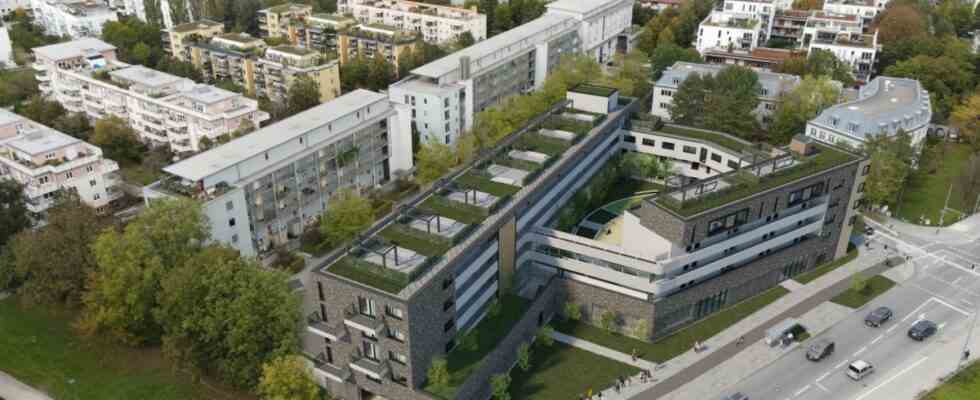“Serviced Apartments” – Lorenz Mayr knows that this is an emotive word. Many people think of living space that is furnished and offered on the rental market for a limited period of time at exorbitant prices, even by Munich standards, and that is out of the question for ordinary apartment seekers. That’s why Mayr, one of two investors for the “Isarleiten” residential and commercial building on Wolfratshauser Strasse 90-92, is offensively tackling the issue himself at the laying of the foundation stone this Tuesday afternoon: just recently he and the host family of the “Asam-Schlössl” spoke, who said how difficult it was to find cooks, also because of the eternal housing problem. And so there are “many companies that are in the area and are looking for housing for their employees,” says Mayr.
In this project near the banks of the Isar, he and his partner, the real estate entrepreneur Hans Hammer with his Hammer AG, want to offer all of these 50 “serviced apartments” in the future, which will be operated by a special company. The construction project will also include 51 rental apartments “between two rooms and 120 square meters,” as Hammer says.
He emphasizes that both investors would keep the building complex in their portfolio. Some of the rental apartments will be subsidized. The investors have not yet provided any information on how high the rents will be in the privately financed part. Mayr, who works as a lawyer, runs a restaurant with his family in Bernried on Lake Starnberg and manages a portfolio of apartments that he has not quantified, but emphasizes that the rents traditionally are “at the lower end of the scale. We count ourselves to the social landlords”. That will also apply to this project.
The special forms of housing are derived from the development plan
But why don’t Hammer and Mayr simply build more regular rental apartments? Hans Hammer explains this with the specifications of the development plan applicable to the property, which specifies use partly for commercial and partly for living. Like the supermarket on the ground floor that has already been rented to the “Tegut” chain, the “serviced apartments” are part of the commercial part of the project. “In theory, we could have built offices instead of commercial housing,” says Hammer, who is the Munich city councilor for the CSU, but in this case appears as an entrepreneur.
Economics officer Clemens Baumgärtner, who is also active in another function for the CSU, speaks at the celebration as a representative of the city, namely in the Untergiesing-Harlaching district committee. When appreciating the construction project, Baumgärtner reaches far up the shelf and speaks of a “prototype of new construction” because different uses are combined here in an exemplary manner. “Many people welcome the fact that Munich is so attractive for start-ups. I think that’s cool too,” says Baumgärtner. “But they also need living space for their employees. That’s why I’m happy about every investor who builds.”

